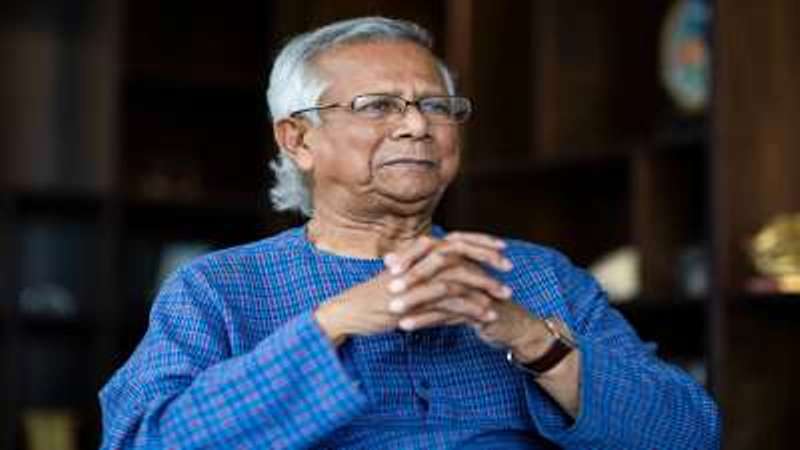Chief Adviser of Bangladesh’s interim government Muhammad Yunus called for an ‘integrated economic strategy’ between Bangladesh, Nepal, Bhutan, and the seven Northeast India states, emphasising cross-border collaboration in hydropower, healthcare, and road connectivity.
Muhammad Yunus made the remark on Monday during a courtesy call paid by Indira Rana, Deputy Speaker of the House of Representatives of Nepal, who was visiting Dhaka for an event.
In less than two months, Bangladesh’s head of the interim government has again brought into play India’s internal geography in proposing regional cooperation without the approval of New Delhi.
During his visit to China from March 26 to 29, Muhammad Yunus described Northeast India as ‘landlocked’ and had no way to reach out to the ocean, presenting Bangladesh as the primary gateway for the region’s maritime access.
He had also encouraged Beijing to expand its economic influence in Bangladesh, calling the country the ‘only guardian of the ocean’ in the region.
Muhammad Yunus’ depiction of Northeast India as ‘landlocked’ had caught him on the wrong foot, and he was disparaged for invoking India’s internal geography in an ambitious economic pitch to China.
The chief of Bangladesh’s interim government should not forget that Northeast India states are an integral part of the Indian Union, and any attempt to create an economic bloc that directly links foreign nations, bypassing New Delhi, would mean circumvention of India’s central authority.
Such a move can set a dangerous precedent, potentially emboldening regional separatist sentiments and inviting unnecessary geopolitical scrutiny into India’s internal affairs.
From a strategic perspective, an integrated economic policy between Bangladesh and Northeast India is an encroachment into the sensitive border regions.
The Northeast is not just a geographical space; it is a strategically volatile zone, surrounded by countries like China and Myanmar.
Proposals that hint at external influence in this region are nothing but attempts to infringe upon India’s strategic autonomy.
India and Bangladesh have made remarkable strides in the bilateral relationship over the past decade, especially under the leadership of Prime Minister Sheikh Hasina.
Economic cooperation, connectivity projects, and water-sharing agreements have deepened mutual trust.
Introducing third parties like Nepal and Bhutan, and focusing on a sub-national region of India will dilute the bilateral focus.
Muhammad Yunus’ dream of regional cooperation involving Northeast India will further aggravate the diplomatic relations, as the move is being perceived as Bangladesh trying to play a regional leadership role at India’s expense.
Did Muhammad Yunus ever try to discuss with New Delhi about his proposed sub-regional cooperation involving Northeast India?
The CA of the interim government in Bangladesh should not forget that any attempt to integrate Northeast India into a regional economic framework must get a green signal from New Delhi.
Regional economic cooperation between these countries is already being explored under platforms like BIMSTEC (Bay of Bengal Initiative for Multi-Sectoral Technical and Economic Cooperation) and BBIN (Bangladesh, Bhutan, India, Nepal Initiative).
These multilateral frameworks involve national governments and are structured in a way that respects each country’s sovereignty and internal structures.
Muhammad Yunus’ proposal bypasses these diplomatic mechanisms and is seen as redundant or even disruptive.
ALSO READ: Bangladesh Army all set to procure China-made SAMs and MSAMs
Bangladesh should now try to improve its relations with India through bilateral diplomacy and multilateral institutions, rather than proposing ambitious frameworks that might undermine India’s internal coherence.















